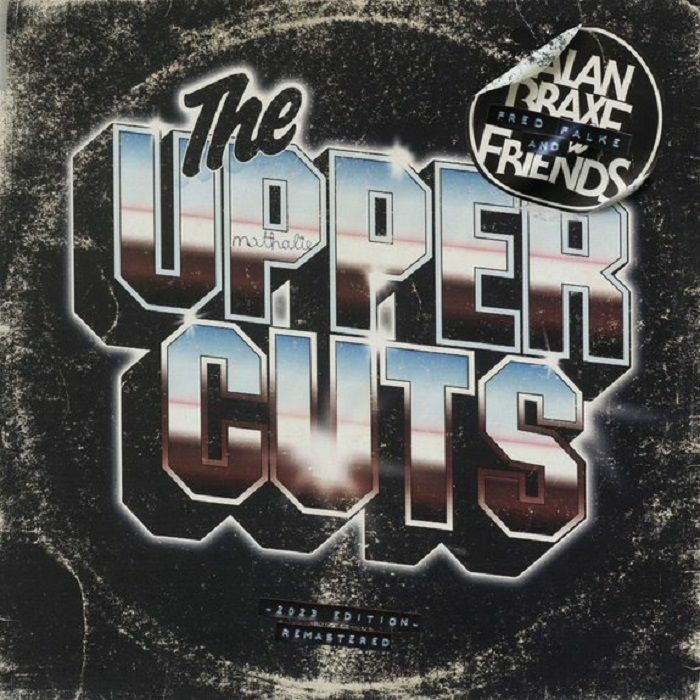Dusted Down: Alan Braxe – The Upper Cuts 10th Anniverary Edition
The lesser spotted French touch pioneer finally in the spotlight

Alan Braxe – The Upper Cuts (2023 Edition) (Smugglers Way)
A reissue of a compilation, this new version of The Upper Cuts once again celebrates Alan Braxe – the French house pioneer whose influence rings further and wider across the dance world than most are aware or think.
Braxe (real name Alain Quême) was a member of several different groups, despite his attempts to cover his tracks. Few are likely to know Braxe was the mysterious third member of Stardust – the group responsible for the hit single ‘Music Sounds Better With You’ – along with Benjamin Diamond and Thomas Bangalter of Daft Punk fame. When pressed, Braxe famously neither confirmed nor denied his involvement in the project. Tending towards the elusive, Braxe’s taste for collaboration has similarly seen him indulge one-off projects, often with fellow figureheads such as Fred Falke. One such alias, The Paradise, saw much traction with the repetitive refrain and rapturous strings of the track ‘In Love With You’. Even so, few clocked Braxe’s involvement until much later. Reticent musicians often make for good ones, and it’s certainly the case here.
But why might Braxe have tried to hide? Well, one of the defining features of French house is its use of samples, which it usually uses to achieve a record-skipping effect. Braxe used samples to build a sense of not just nostalgia, but metanarrative, which absolved him of much of the usual pressure on electronic artists to contextualize things. Infamously, ‘Music Sounds Better with You’ samples Chaka Khan’s ‘Fate’. To indulge nerdy music production language for a moment, the sample – which is a four-beat loop from the opening phrase – is plunged in bitcrusher and lowpass filtration, creating a feeling of digital distortion and transmission through an imperfect electronic medium. This fills the song with suspense, and touches on anxieties around tech. Will this era of mediated convenience ultimately serve humanity well, or poorly? Does music-making technology trap us in time? Will it ever end? (The music video shows an innocent child interacting with new tech like TVs and toy planes).
Similar arguments can be made about other tracks featured here. The famously catchy ‘Intro’ lifts the chorus from The Jets’ ‘Crush On You’, which has probably been sampled more times than we’ve had hot dinners. Again, it’s looped to infinity through freezing bitcrush and monumental kick drum thwacks. ‘Rubicon’ samples Rhythm Man’s ‘St. Regis’, and while it lets up on the signature record-skippy effect somewhat, it still adds an incredible amount of add-prod to the originally soft instrumental hook. It’s as if a suit of impenetrable electronic armor were being fitted to the original beat, upping its defenses at the expense of agility.
Perhaps electronic music really does trap us in time. While The Upper Cuts consists of tracks that were released in the late 90s to early 2000s, they still sound ‘relevant’ today, unlike ‘live’ pop equals such as funk and disco, which sound dated. The IP battles around sampling is evidence of this. Fellow French housers Daft Punk are often praised for clearing nearly every sample they ever lift from another source. When fellow celebs fail to follow suit – Kanye West, for example – there’s often huge backlash. But forgetting the needless stringency of IP law for a minute, there’s also an unforeseen problem with this. Constantly drawing dividing lines – legal ‘borders’ of property and ownership in order to denote who owns what idea, even in a profit-driven music world – causes an intellectual ice age, a stasis. Past a certain point, it becomes impossible for folk transmission to take place, because digital files do not change, and every sample has its price.
Braxe’s suspenseful, repetitive French house sound, shared and aped by his contemporaries, is the sonic expression of this realization. There’s a sad sense of being trapped in French house. It jails its disco and funk into kickdrum cages, and looped, quantifiable sample cells. Whether you choose to read euphoria or depression into this ‘enclosing’ of formerly live, groovy and slick styles – funk and disco – is really up to you. Many of us love our prisons. This take reveals something: we’re so drawn to the 1990s because it was the decade in which music ‘crystallized’ into something statue-like, armor-like, preservative. It’s when the record of measurable time skipped, and gave birth to French house.
Jude Iago James
Pre-order your copy of The Upper Cuts on vinyl, coloured vinyl or CD by lciking here